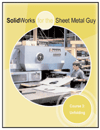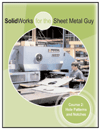Every successful project starts with a framework. A vision statement. A blueprint.
The editors of Engineered Systems are proud to present The Blueprint — a monthly Q&A interview with HVACR engineering’s leading voices. These one-on-one discussions will examine the trade’s history, current industry trends, the factors shaping the sector’s future, and more.
A pioneer in intelligent plumbing and climate solutions, Uponor has led the industry forward for a century while enriching the lives of millions. The company’s products and project-spanning partnerships build strong businesses while moving water where it needs to go, effortlessly and flawlessly. The company’s global headquarters are located in Vantaa, Finland, with regional headquarters in Apple Valley, Minnesota.
Recently, Devin Abellon P.E., business development manager – engineering services at Uponor, sat down with Engineered Systems editor-in-chief, Herb Woerpel, to discuss the company’s latest professional ventures, his personal accomplishments, and much more.
Engineered Systems: First things first, congratulations on receiving ASHRAE’s 2019-2020 George B. Hightower Technical Achievement Award. Tell us about what this honor means to you?
Devin Abellon: Thank you very much. I am sincerely humbled by this tremendous honor. I am always in awe of the dedication, commitment, and creativity of the volunteer members of ASHRAE’s technical committees who freely share their expertise to advance our industry. This award is truly a testament to that collaborative spirit of manufacturers, engineers, researchers, contractors, and building owners all working together for a greater good. Over the past several years, the members of Technical Committee 6.5 (Radiant Heating and Cooling) have done phenomenal work in assembling seminars at ASHRAE’s conferences to highlight best practices to better ensure that radiant systems are designed, installed, and operated optimally to get the desired and anticipated results. I share this honor with all of them.
ES: You’ve been in the engineering industry for a long time – more than 25 years – what was it about this industry that drew you in?
Abellon: When I received my degree in mechanical engineering, my main interests were heat transfer and fluid dynamics, so that is where I focused my career search. I was fortunate to get an opportunity with a mid-sized consulting engineering firm in Phoenix. I found it incredibly rewarding to be able to work through the process of applying engineering principles on a set of construction documents and then seeing your work in construction through commissioning and finally in operation. It’s fascinating how design decisions, such as building-envelope construction and system selection, have such an impact on overall comfort and energy performance. Every day, architects and engineers are making decisions on buildings that will last 30, 40, 100 years. As we look toward the future as an industry and focus on protecting our natural resources — while ensuring safe, healthy, and productive built environments — we need to continue to strive to get better. Today, as a business development manager for Uponor, I have the opportunity to work hand-and-hand with engineers, architects, and contractors, providing them with the technical support and resources to help them make the right decisions on their projects.
ES: Uponor is well-known for its many innovations, including its PEX products. Can you give us a brief rundown on what PEX is and what makes it so effective?
Abellon: Of course. PEX is cross-linked polyethylene. There are different methods to crosslink the molecules. Uponor uses the Engle method, where crosslinking occurs above the crystal melting point to create strong carbon-to-carbon bonds during the extrusion process. The result is PEX-a piping, a very resilient piping material. With sizes up to 3 inches (with an ASTM F1960 fitting connection), it is an excellent alternative to copper tubing for both domestic water and hydronic piping, including radiant heating and cooling.
ES: Uponor recently introduced its New Venture Development business function. Tell us about this endeavor and what you guys hope to accomplish through it.
Abellon: We created the New Venture Development team (NVD) to make sure we keep sufficient focus on opportunities that are complementary to our core business of PEX-based plumbing and heating/cooling systems. We understand PEX systems really well; but our customers want help addressing other challenges too. As our industry’s pace of innovation accelerates, NVD’s focus will help Uponor solve customer problems in new and different ways.
ES: Earlier this year, Uponor announced its Lakeville, Minnesota, distribution facility is now 100% powered by wind. Why is this important for the company and the community at large?
Abellon: Uponor is committed to sustainability, not only with our products and services but also with our internal operations. Since 2017, Uponor has worked with local utilities to purchase renewable energy blocks, increasing its renewable energy consumption in North America to roughly 50% of its total energy use. Globally, Uponor continues to work toward its commitment of achieving 100% renewable resources to power its facilities by 2025. The milestone reached at the Lakeville, Minnesota, distribution center through Dakota Electric Association’s Wellspring Renewable Program is a leap toward achieving not only Uponor’s goals for improving energy efficiency in North America but also on a global scale.
As the first major manufacturing customer to participate in this particular program, Uponor is helping to pave the way for other local businesses to receive all of their power from renewable sources without having to build infrastructure or get into the energy business. By participating, Uponor is able to demonstrate its environmental commitment in tangible and realistic ways. Through this program, Uponor will annually purchase enough kilowatt-hours of wind-generated electricity to power 263 homes’ electricity use for one year.
ES: Uponor has a partnership with Phyn. Tell us about this technology and why it’s gained Uponor’s full endorsement.
Abellon: Phyn is a good example of Uponor finding new ways to help our customers solve problems. Plumbing system leaks cause a range of problems — from the wasted water and elevated water bills of slow, steady leaks to significant property damage from a burst pipe. Phyn uses proprietary technology that enables homeowners to monitor their water usage, detect and repair slow leaks, and remotely shut off systems with more catastrophic failures. Phyn products complement Uponor’s core offerings and can elevate our customers’ experiences.
ES: How has Uponor been impacted by the COVID-19 pandemic?
Abellon: I don’t think there is anyone who has not been impacted by COVID-19. We find ourselves in the midst of a crippling global pandemic that has redefined how we work as an industry and how we interact as a society. Like most others, we are following government and health official recommendations to keep the health and safety of our employees, partners, and customers as our highest priority. In this time of uncertainty; however, the leadership team at Uponor has done a phenomenal job maintaining full transparency by keeping all employees up to date on things through regularly scheduled webinars.
ES: What innovations or breakthrough technologies are currently in R&D? Can you give us any “inside” information on what’s coming down the pipeline (pun intended!)?
Abellon: Well, I can’t speak for the hardworking folks in our R&D department and can’t reveal much until we’re ready to bring new solutions to market, but we’re heavily invested in improving productivity for our professional customers and the health, safety, and comfort for building occupants, whether those buildings are residential or commercial. In a COVID-19 or post-COVID-19 world, these benefits will be more important than ever. One thing we can share: If a potential innovation doesn’t obviously meet critical customer needs, we’ll move on to the next idea. Even the most impressive technological accomplishments need to deliver pragmatic value.
ES: Can you identify one trend that’s sure to shape the future of the built environment?
Abellon: I think one of the benefits of this current pandemic is that it has forced our entire industry to very quickly adapt to working in a virtual environment. We have all gotten better at online collaboration, and many have found that they are much more productive and efficient and in getting tasks done when they don’t have to physically travel between meeting locations and job sites. I believe that this new way of working will continue, at least to some degree, well after the threat of this current pandemic subsides. This will lead to improvements in online collaboration tools and platforms that will enable us to streamline our design and construction processes. Pre-fabrication strategies will continue to evolve and become more mainstream. I still value the importance of in-person meetings but by shifting tasks toward digital, we can all be more effective.
ES: What does the future hold for you personally and professionally?
Abellon: I love what I’m doing now, working closely with engineers, architects, and contractors on exciting projects around the world, so I hope to continue doing so for the foreseeable future. When I’m not working, I enjoy playing guitar, hiking, and spending time with our two beautiful grandchildren.
ES: If you could leave consulting/specifying engineers with one chunk of knowledge from this interview, what would that be?
Abellon: Never stop learning. Our industry is evolving now more than ever, and it’s important to stay on top of trends and best practices. Also, join ASHRAE and get involved. There is simply no better way to stay engaged with the brightest minds in our industry than through ASHRAE. Volunteering at your local chapter, region, or society level is tremendously rewarding, and you get to meet some pretty amazing people.







